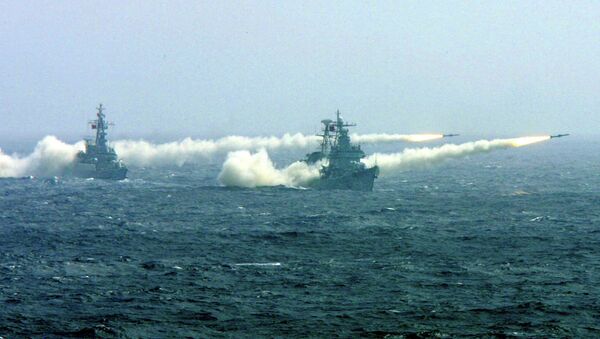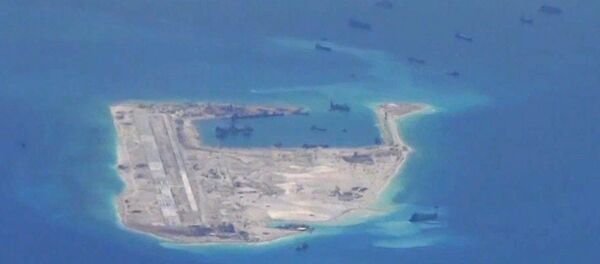Beijing vowed a resolute response to any intended provocation after the USS destroyer Lassen "illegally" entered the waters of the South China Sea near disputed islands.
"China strongly urges the U.S. side to conscientiously handle China's serious representations, immediately correct its mistake and not take any dangerous or provocative acts that threaten China's sovereignty and security interests," the Chinese Foreign Ministry said in a statement.
The US sent guide-missile destroyer USS Lassen to pass some 12 nautical miles from Subi Reef in the Spratly Islands on Tuesday morning.
The maritime disputes carry a special significance in Asia. Unlike in Europe, water is the organizing component of the continent. Ownership of a particular island, reef or rock, and the right to name a body of water is more than a question of sentimentality — it is the foundation of many national policy strategies, the website Stratfor reported.
“Securing the right to patrol, build bases and regulate trade through these waterways can mean access to resources critical to sustaining economic growth and political stability,” the publication noted.
China and the US have different national and regional strategies. China portrays the South China Sea dispute as essentially a question of sovereignty. The United States, however, emphases concerns about freedom of navigation.
In China's near seas, the US global strategy comes into conflict with China's regional needs. Since the early 1980s, China has become a major exporter. Due to that Beijing had to reassess its maritime risks and vulnerabilities.
“China is no longer able to protect its national economy without securing the maritime routes it needs to maintain trade and to feed its industrial plant.”
Japan has its own concerns about South China Sea claims. As an island nation with few natural resources, Japan’s economic lifelines can only pass through the seas — it has no land options.
China’s expansion of activity in the waters, following its firm activities in the East China Sea, have made it clear to Tokyo that there has been a real change in the Asia-Pacific and that Japan needs to secure its interests.
“While China has suggested it may accept continued US patrols, it has also asserted that it absolutely cannot accept any role for Japan in the South China Sea, arguing that Japan has no legitimate claims or interests in the waters.”





